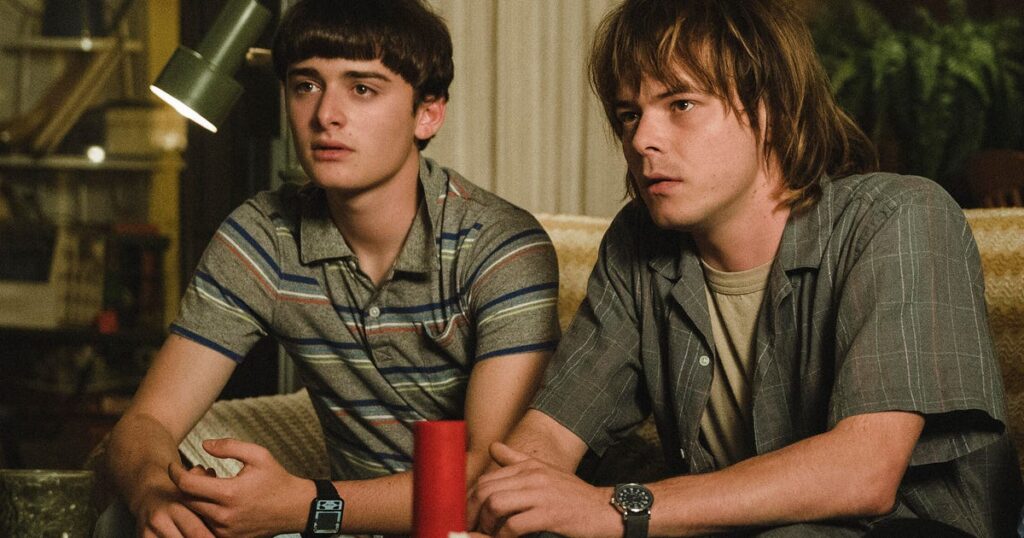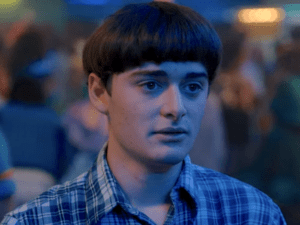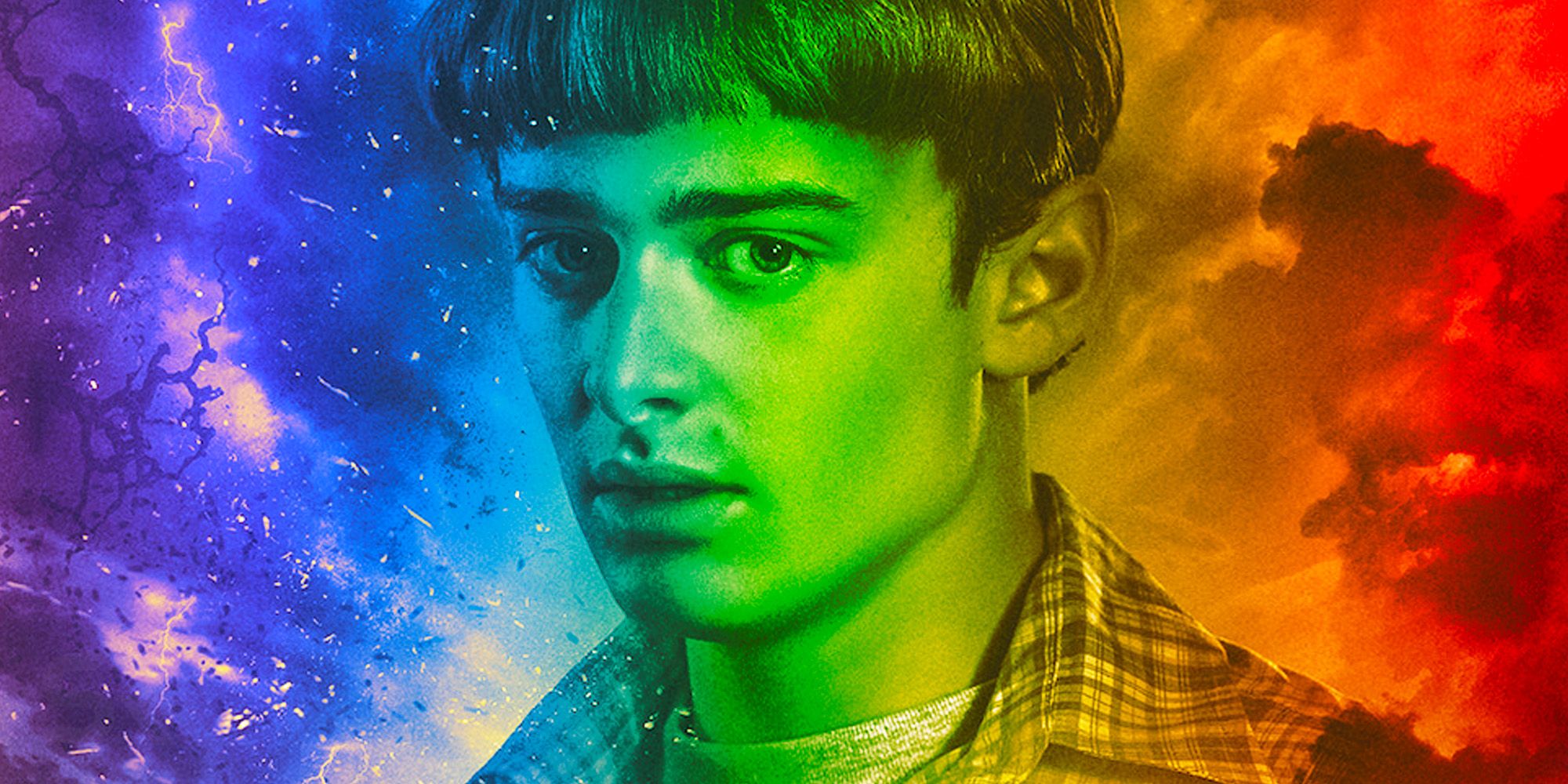Generation Hispanic TV - Live
Will Byers’ Sexuality: Stranger Things Star Noah Schnapp Comments
Is Ambiguity Appropriate for LGBTQ+ Characters in Mainstream Media?
Following an interview with Variety, actor and Stranger Things star Noah Schnapp has faced backlash for his commentary on his character, Will Byers, and the ambiguity surrounding his sexuality. What Schnapp is facing the most criticism for is the ideology that leaving Will’s sexuality up for interpretation is ‘beautiful’.
In the interview, Schnapp said, “I feel like they never really address it or blatantly say how Will is…I think that’s the beauty of it, that it’s just up to the audience’s interpretation…If it’s Will kind of just refusing to grow up and growing up slower than his friends, or if he really is gay.”
In short, Schnapp argues that “it’s 2022”, and consequently, there is no necessity for the labels. But, what this take fails to recognise is that a popular show with a vast and dynamic fanbase would appreciate more representation. It’s the use of ‘more’ here that is particularly important, as the show does feature a single openly LGBTQ+ character.

Will and Jonathan Byers © Netflix
Actor Maya Hawke portrays the character of Robin, an out and proud lesbian. What the presence of Hawkes character does is give the illusion of representation. As an audience, we are unfortunately not yet used to the presence of more than one LGBTQ+ character in any given form of media. Robin’s role is that of a typical queer character, she acts as the ‘token gay’ character whose sexuality is made explicit for the purpose of representation but is not overly important to the progression of the plot. Consequently, when there is a queer presence on TV, as in this scenario, we are almost tricked into feeling appreciative that there is any representation at all. But, of course, it is never likely that there is just one LGBTQ+ person in a room.
Schnapp’s comment and the Duffer Brother’s decision (the producers and writers of the show) to leave Will Byers’ sexuality ambiguous reads as an act of cowardice. Perhaps, out of fear of alienating the show’s heterosexual audience that may begin to feel side-lined by more LGBTQ+ representation. Additionally, choosing for Byers’ sexuality to remain unlabelled means that any hints towards the character being LGBTQ+ could be classed as queerbaiting.
It is the most recent Season (Season 4) that takes a blatant and, therefore, upsetting approach. Within the four episodes that premiered on Netflix in late May, Byers is given a school project in which he must present who his hero is to his class. Byers chooses the well-known gay man Alan Turing, who is often credited with being the main agent behind the cracking of the German WW2 code machine, The Enigma. Turing’s story does not end there, disappointingly, and despite practically winning the war for the UK and its allies, post-WW2 Turing was eventually chemically castrated for his homosexuality, resulting in perhaps one of the most devasting suicides in LGBTQ+ history.
For Byers to choose Turing as his hero, he feels connected and can relate to the mathematician. And obviously, given the nature of ambiguity, we are not left certain if it is because Byers relates to Turing for his sexuality. Instead, it is alluded to, and we are left to assume that Turing’s sexuality is one of the factors in Byer’s choice: Will relates to him because he is gay, and we’ve been manipulated to think such a thing.

Will Byers © Netflix
Despite this, it can be argued and interpreted that Byers chose Turing merely because he admired his abilities as a mathematician and the cracking of The Enigma. Maybe, this could be argued if there were no other more obvious allusions to Byer’s homosexuality. It is made blatant even in Episode 1, Season 1, in which Byer’s mother is explaining to the local Sheriff that Will is a “sensitive kid…Lonnie used to say he was queer” and therefore everyone should be more concerned about the fact that he’s missing. Here, it could not be more obvious that Byer’s sexuality may not necessarily be heterosexual. Kids are, of course, mean and like to torment their peers for being unique and going against the grain in any which way. But this, paired with later allusions to Byer’s sexuality as one that is not exclusively hetero, leaves the audience with the subliminal message that he may be queer. And unfortunately, when choosing not to explicitly highlight this notion, we are left with a show that has chosen to queerbait their audience.
But what we must keep in mind is that Schnapp is only a 17-year-old-actor actor who is trying explain choices made by the show’s writers that he most likely hand no hand in. So, while criticism of the actor’s comments is valid, it’s important to bear in mind that Schnapp is not to blame. Instead, this is a harmful and repetitive lack of representation which has been decided by both the writers and the producers of the show and that is where critique should be aimed.



